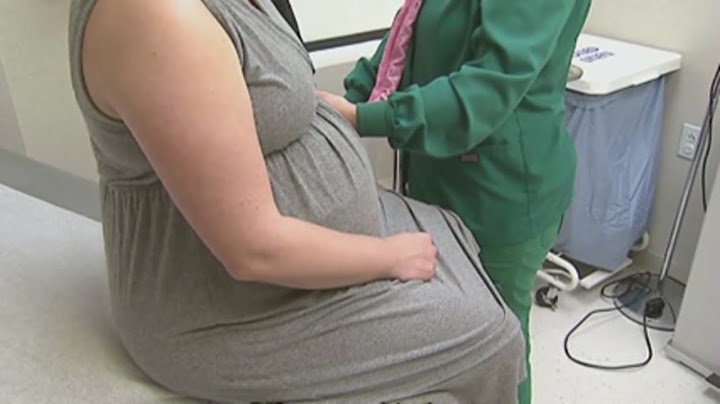Feeling sick (nausea) is common and usually goes away on its own. There are some things you can try that might help. get plenty of fresh air distract yourself – for example, listen to music or watch a film take regular sips of a cold drink drink ginger or peppermint tea eat foods containing ginger – such as ginger biscuits eat smaller, more frequent meals do not eat or cook strong-smelling food do not eat hot, fried or greasy food do not eat too quickly do not have a large drink with meals do not lie down soon after eating do not wear clothes that are tight around your waist or tummy Non-urgent advice: See a GP if you:
The GP can look for the cause and suggest treatments. They may prescribe anti-sickness medicine if needed. Call 111 for advice if you cannot see a GP. Immediate action required: Call 999 if:You suddenly feel sick and have:
This could be a heart attack. Common causes of feeling sickLots of things can make you feel sick. Any other symptoms you have may give you an idea of the cause. But do not self-diagnose – see a GP if you're worried. Other reasons for feeling sick include:
Information: Do not worry if you're not sure what's causing you to feel sick. Try the things that may stop you feeling sick and see a GP if you do not feel better in a few days. Page last reviewed: 12 May 2021 We include products we think are useful for our readers. If you buy through links on this page, we may earn a small commission. Here’s our process. Overview Nausea is stomach discomfort and the sensation of wanting to vomit. Nausea can be a precursor to vomiting the contents of the stomach. The condition has many causes and can often be prevented. Nausea can stem from a variety of causes. Some people are highly sensitive to motion or to certain foods, medications, or the effects of certain medical conditions. All these things can cause nausea. Common causes of nausea are described below. Heartburn or gastroesophageal reflux disease (GERD)Heartburn or gastroesophageal reflux disease (GERD) can cause your stomach’s contents to move back up your esophagus when you eat. This creates a burning sensation that causes nausea. Infection or virusBacteria or viruses can affect the stomach and lead to nausea. Foodborne bacteria can cause an illness known as food poisoning. Viral infections can also cause nausea. MedicationsTaking certain medications — for example, cancer treatments like chemotherapy — can upset the stomach or contribute to nausea. Be sure to carefully read the medication information for any new treatments you may be taking. Reading this information and talking to your doctor about any medications and treatments you’re receiving can help you minimize medication-related nausea. Motion sickness and seasicknessMotion sickness and seasickness can result from a bumpy ride on a vehicle. This movement can cause the messages transmitted to the brain to not sync up with the senses, leading to nausea, dizziness, or vomiting. DietOvereating or eating certain foods, such as spicy or high-fat foods, can upset the stomach and cause nausea. Eating foods you’re allergic to can also cause nausea. PainIntense pain can contribute to nausea symptoms. This is true for painful conditions such as pancreatitis, gallbladder stones, and or kidney stones. UlcerUlcers, or sores in the stomach or the lining of the small intestine, can contribute to nausea. When you eat, an ulcer can cause a burning sensation and sudden nausea. Nausea is also a symptom of several other medical conditions, including:
Seek immediate medical help if your nausea is accompanied by heart attack symptoms. Heart attack symptoms include crushing chest pain, an intense headache, jaw pain, sweating, or pain in your left arm. You should also seek emergency attention if you experience nausea combined with a severe headache, stiff neck, difficulty breathing, or confusion. Seek medical help if you suspect that you’ve ingested a poisonous substance or if you’re dehydrated. See your physician if nausea has left you unable to eat or drink for more than 12 hours. You should also see your physician if your nausea doesn’t subside within 24 hours of trying over-the-counter interventions. Always seek medical attention if you’re concerned you may be experiencing a medical emergency. Treatment for nausea depends on the cause. Sitting in the front seat of a car, for example, may relieve motion sickness. Motion sickness can also be helped with medications such as dimenhydrinate (Dramamine), an antihistamine, or by applying a scopolamine patch to relieve seasickness. Taking medications to address nausea’s underlying cause can help as well. Examples include stomach-acid reducers for GERD or pain-relieving medications for intense headaches. Keeping hydrated can help to minimize dehydration after your nausea subsides. This includes taking small, frequent sips of clear liquids, such as water or an electrolyte-containing beverage. When you begin to reintroduce food, it’s helpful to stick to the BRAT diet (bananas, rice, applesauce, and toast) until your stomach is more settled. Avoiding nausea triggers can help to prevent nausea’s onset. This includes avoiding:
Taking an anti-nausea medication (scopolamine) before a journey can also prevent motion sickness. Changes to your eating habits, such as eating small, frequent meals, can help to reduce nausea symptoms. Avoiding intense physical activity after meals can also minimize nausea. Avoiding spicy, high-fat, or greasy foods can also help. Examples of foods that are less likely to cause nausea include cereal, crackers, toast, gelatin, and broth. What causes nausea in the morning for men?These include low blood sugar and dehydration. Many people experience nausea in the morning. Sometimes, it is only a temporary problem, but morning nausea can also be a chronic condition. Many conditions, ranging from benign to very serious, may cause morning nausea.
What does it mean if I wake up nauseous every morning?We often feel emotions such as stress, excitement, and anxiety in our gut. Nausea in the morning might be related to a stressful event, such as an upcoming important meeting. In other cases, it's caused by chronic or ongoing sources of stress or anxiety.
What is nausea a symptom of in men?Several conditions can cause nausea, including stress, anxiety, infections, motion sickness, and many more. Occasional temporary nausea is also common but typically not cause for concern. Nausea is a sensation that makes a person feel they need to vomit. Sometimes, individuals with nausea do vomit, but not always.
What helps nausea in the morning for men?To take down the nausea, make sure you're properly hydrated and fed. Keeping caffeine to a minimum can also help avoid feeling nausea.
|

Advertising
LATEST NEWS
Advertising
Populer
Advertising
About

Copyright © 2024 muatrau Inc.












